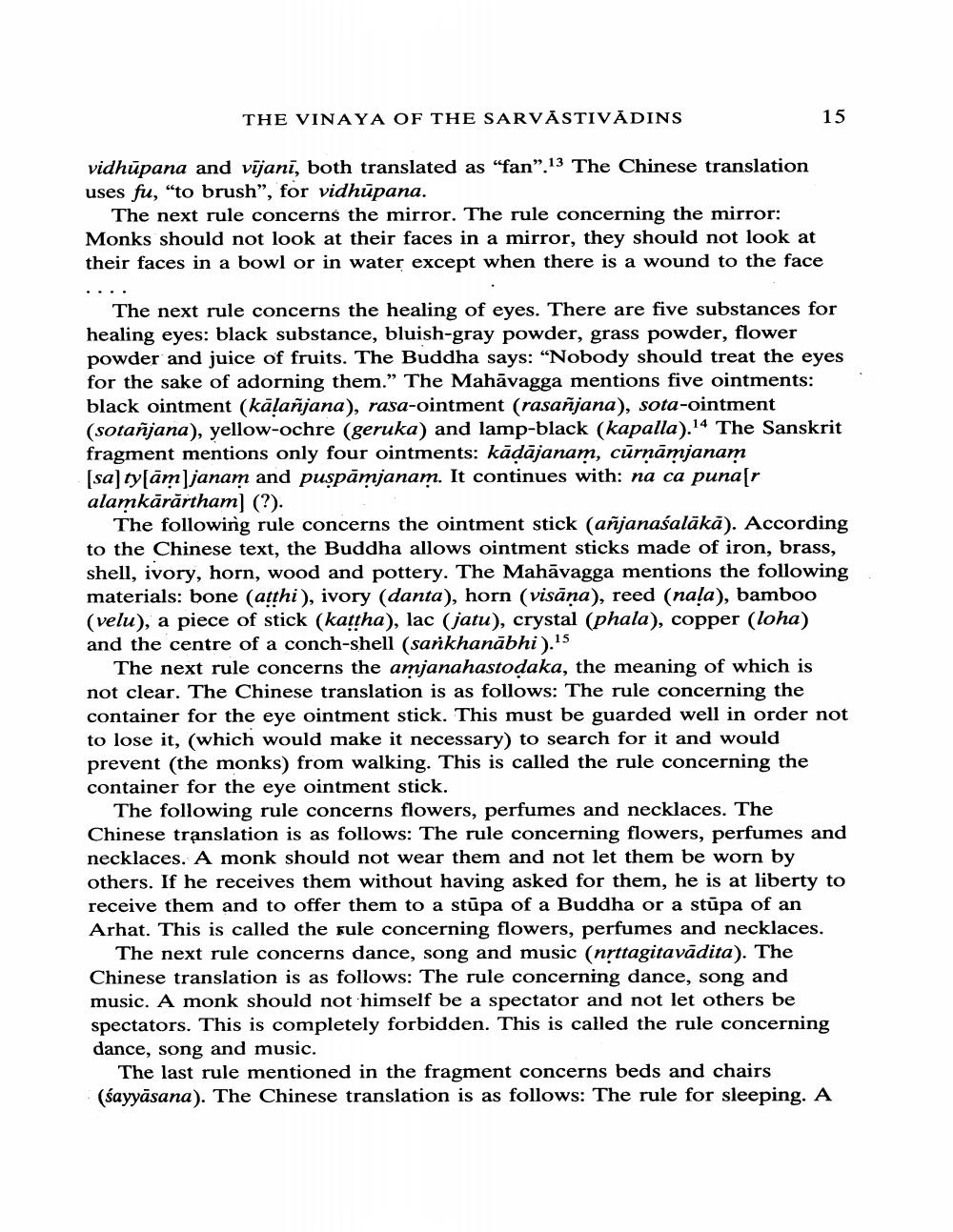Book Title: Three Sanskrit Fragments Of Vinaya Of Sarvastivadins Author(s): J W De Jong Publisher: J W De Jong View full book textPage 5
________________ THE VINAYA OF THE SARVĀSTIVĀDINS 15 vidhupana and vijani, both translated as “fan”.13 The Chinese translation uses fu, "to brush", for vidhūpana. The next rule concerns the mirror. The rule concerning the mirror: Monks should not look at their faces in a mirror, they should not look at their faces in a bowl or in water except when there is a wound to the face The next rule concerns the healing of eyes. There are five substances for healing eyes: black substance, bluish-gray powder, grass powder, flower powder and juice of fruits. The Buddha says: "Nobody should treat the eyes for the sake of adorning them.” The Mahāvagga mentions five ointments: black ointment (kālañjana), rasa-ointment (rasañjana), sota-ointment (sotañjana), yellow-ochre (geruka) and lamp-black (kapalla).14 The Sanskrit fragment mentions only four ointments: kādājanam, cūrņāmjanam (sa) tysām janam and puşpāmjanam. It continues with: na ca punasr alamkārārtham] (?). The following rule concerns the ointment stick (añjanaśalākā). According to the Chinese text, the Buddha allows ointment sticks made of iron, brass, shell, ivory, horn, wood and pottery. The Mahāvagga mentions the following materials: bone (atthi), ivory (danta), horn (visāņa), reed (nala), bamboo (velu), a piece of stick (kattha), lac (jatu), crystal (phala), copper (loha) and the centre of a conch-shell (sarkhanābhi).15 The next rule concerns the amjanahastodaka, the meaning of which is not clear. The Chinese translation is as follows: The rule concerning the container for the eye ointment stick. This must be guarded well in order not to lose it, (which would make it necessary) to search for it and would prevent (the monks) from walking. This is called the rule concerning the container for the eye ointment stick. The following rule concerns flowers, perfumes and necklaces. The Chinese translation is as follows: The rule concerning flowers, perfumes and necklaces. A monk should not wear them and not let them be worn by others. If he receives them without having asked for them, he is at liberty to receive them and to offer them to a stūpa of a Buddha or a stupa of an Arhat. This is called the rule concerning flowers, perfumes and necklaces. The next rule concerns dance, song and music (nrttagitavādita). The Chinese translation is as follows: The rule concerning dance, song and music. A monk should not himself be a spectator and not let others be spectators. This is completely forbidden. This is called the rule concerning dance, song and music. The last rule mentioned in the fragment concerns beds and chairs (sayyāsana). The Chinese translation is as follows: The rule for sleeping. APage Navigation
1 ... 3 4 5 6
